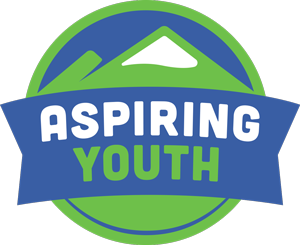admin
Learning Environments and Living Environments
Transferring lessons for school to home and back again. A talk with Ilene Schwartz, Ph.D., BCBA-D of University of Washington Learning happens everywhere. For all people it is important to use the skills that we learn across environments — at school, home, work, and in the community. For people with disabilities, especially those with ASD, using skills learned in one environment
So, they play video games. But what does that mean?
Video games have grown up – as have those who play them (average gamer age is 35). Some classics like The Legend of Zelda or Super Mario Brothers are at least 30 years old, so it’s safe to say that video games are part of our culture. Despite this, I routinely encounter clinicians and parents who use the term “video
Can my teen attend college?
Thinking about college can be an intimidating challenge for teens on the autism spectrum, but maybe even more so for their parents. How will children manage without their special education case managers? How will they do without their social-emotional or behavioral supports in place? Might they flounder in the seas of large lecture classrooms? And of course those executive functioning skills: attention, organization, planning…
Why it might not be ADHD
Difficulties with a child’s attention or ability to sit still are significant concerns for a lot of parents who come to my office. They hope to find answers, and at the same time avoid over-pathologize their child. However, psychiatric diagnostics is a complex concept, and even if there is significant difficulty paying attention or holding still, it may not be
Changing behavior: The ABCs
Understanding behaviors can be… challenging. We often hear from parents and teachers: “She won’t stop doing it, even though I’ve asked her to stop.” “It doesn’t matter what punishment I give. He still does it.” To truly understand the behavior and how to change it, we need to know exactly what the challenging behavior looks like, what “triggers it”, and
Winter 2016 Social Skills Groups
Where students gain confidence and understanding to navigate their social world. Build social skills in a supportive peer community facilitated by masters level therapists since 2005. Online registration is now open for groups beginning January 20, 2016. Our groups help young people with Asperger’s, autism, ADHD, learning disabilities and similar traits develop the skills and confidence they need. Prioritizing each student’s needs,
Increase activity. Increase achievement.
Many of the kids we know and love show signs of inattention, hyperactivity, and impulsivity. We often see this interfering with their school performance. A study recently published in Clinical Neuropsychology supported the idea that children with Attention Deficit/Hyperactivity Disorder (ADHD) have better cognitive performance when they’re allowed to engage in physical activity. What the study found: The researchers compared
Why Games? Why Not?
When I consult with parents about our Aspiring Youth groups, they often ask me why I use so many board and card games. Most Aspiring Youth participants are dealing with challenges from social anxiety or something called executive functioning (more below) – or a bit of both. With a little thoughtfulness, games help our students work on both. Given it’s the holidays, here are some
Learning Challenge: Escaping the “Feed”
A young adult science fiction novel, set in the not too distant future, mirrors the challenges that present day teenagers face. In my years of teaching high school language arts, one of the most popular novels among my students has been Feed by M.T. Anderson. It takes place in a dystopian future in which the majority of the population chooses
Winter break is coming – sign up now for camp!
A chance for students to have fun, build skills and connect with friends! Winter break camp is a fun opportunity to connect with friends while pursuing games, activities and excursions. Our master’s level counselors make sure that winter break is a place for students to recharge while building social skills and confidence. Dates available include Dec. 21-23 and Dec. 28-31. Activities:


Recent Comments